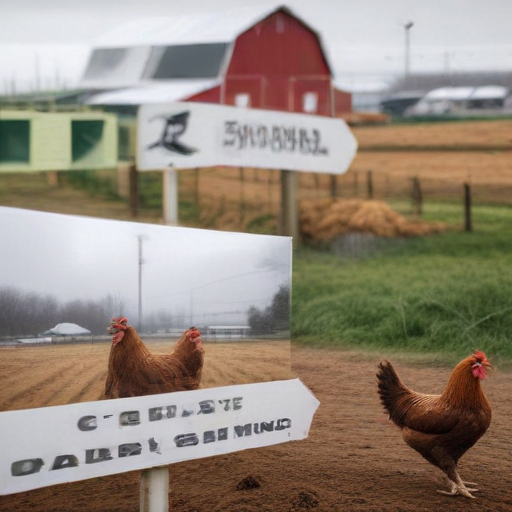For nearly three years, the avian influenza virus has wreaked havoc on poultry farms across the U.S., with California particularly hard hit. This virus has now spread to cattle, resulting in 34 confirmed human cases in the state, primarily among those who work in poultry and dairy industries, since last spring.
Although there have been no recorded instances of human-to-human transmission, Governor Gavin Newsom recently issued an emergency proclamation aimed at curbing the virus’s spread. This order will provide state and local agencies with increased flexibility in staffing, contracting, and other necessary regulations as California responds to this evolving health crisis.
“Building on California’s testing and monitoring system — the largest in the nation — we are committed to further protecting public health, supporting our agriculture industry, and ensuring that Californians have access to accurate, up-to-date information,” Newsom stated.
The outbreak has been particularly concentrated in Tulare County, which is known as the nation’s leading milk producer, where there have been 18 reported human cases of bird flu. However, in response to the situation, Republican Assemblymember Alexandra Macedo criticized Newsom for perceived inaction and a lack of funding for adequate testing capabilities. It’s also notable that the virus has been detected in at least 17 wastewater systems across the state.
Farmworkers have reported symptoms resembling the flu and pink eye, while one child in Alameda County experienced mild upper respiratory symptoms. Local health departments and farms have taken measures to distribute personal protective equipment, although worker advocates feel that the state has not done enough and has been slow in testing infected cattle.
Experts caution that even individuals who do not work directly with livestock could see an impact from this outbreak. Maurice Pitesky, an associate professor at UC Davis School of Veterinary Medicine, shared insights about how the bird flu could significantly affect food security. “Egg prices are near historic highs,” he noted, emphasizing that this situation could jeopardize the production of animal protein and the sustainability of farmers.
Pitesky also referenced a study conducted by the National Institutes of Health, published recently in Science, which indicated that just one mutation of the virus could create a significantly more infectious variant among humans.
To reduce personal risk, Pitesky recommends avoiding raw milk and suggests that those who have backyard chickens—estimated to number around 100,000 in California—should practice regular hand-washing and maintain dedicated clothing solely for outdoor use.
As California navigates this health challenge, there remains a glimmer of hope. The proactive measures being implemented by state agencies, combined with expert guidance and community awareness, will play a crucial role in mitigating the virus’s impact on public health and the agriculture sector. The ongoing commitment to monitoring and response may also foster greater resilience against future health threats.
